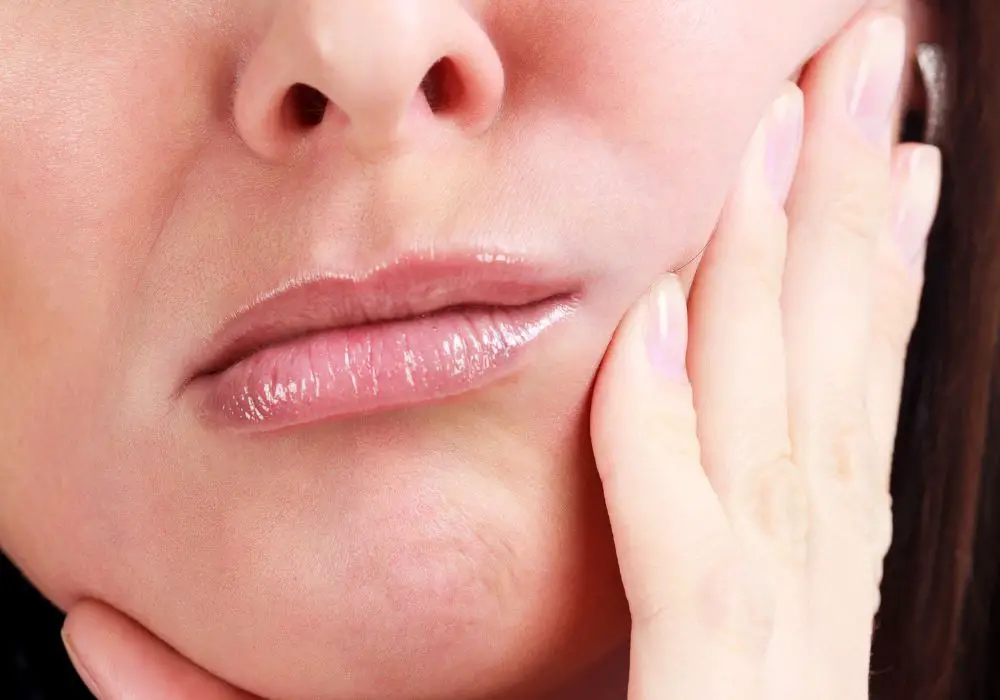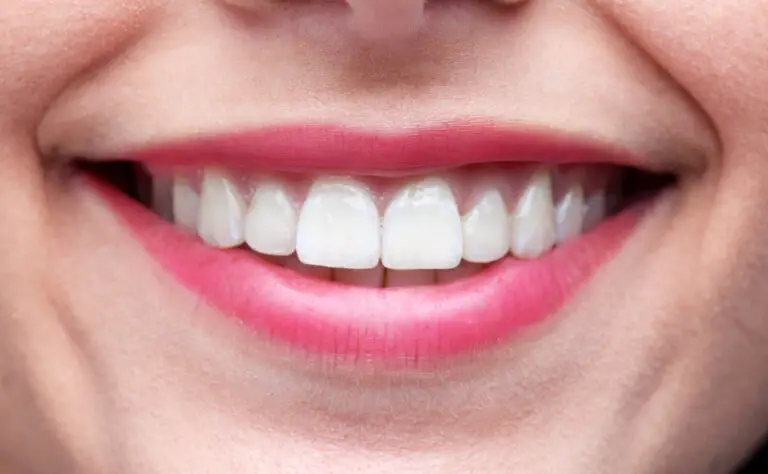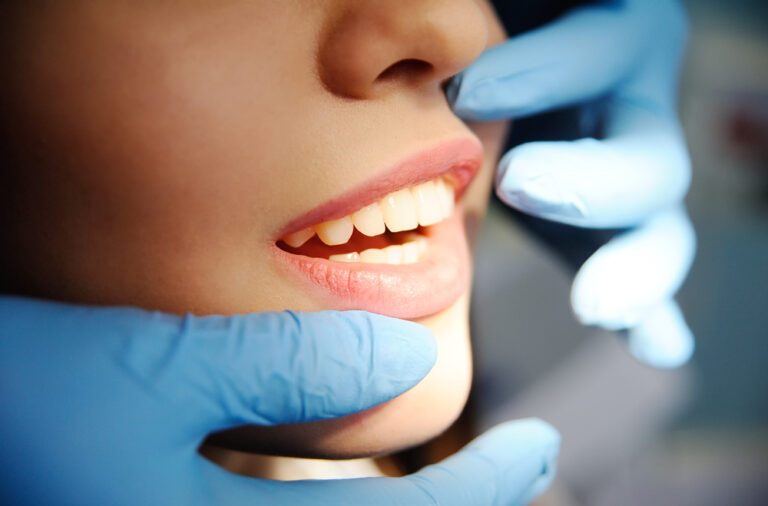Fluoride is commonly added to drinking water and dental products to help strengthen enamel and prevent tooth decay. But some people wonder if excessive fluoride exposure can backfire and cause tooth sensitivity instead. This article provides an in-depth look at how fluoride affects dental health, whether too much can irritate teeth, and what you can do to prevent and treat sensitivity issues.
What is fluoride and how does it protect teeth?
Fluoride is a naturally occurring mineral that is extremely useful for oral health. Most water supplies in the U.S. are fortified with added fluoride to bring it to optimal levels of 0.7 parts per million (ppm). Fluoride works primarily by interacting with hydroxyapatite crystals that form the structure of teeth. It strengthens areas that have lost calcium and phosphate minerals, known as remineralization. Fluoride also inhibits the metabolic enzymes of cariogenic bacteria, reducing their ability to produce cavity-causing acids.
The main protective mechanisms of fluoride include:
- Remineralization – Fluoride attracts calcium and phosphate ions and redeposits them into weakened regions of enamel that have lost minerals from attack by plaque acids. This “remineralization” restores strength and mineral content.
- Inhibiting demineralization – Fluoride minerals incorporated into enamel make it more resistant to acid dissolution, or “demineralization.” Acids from fermenting bacterial plaque begin dissolving enamel minerals, which fluoride helps prevent.
- Antibacterial properties – Fluoride decreases bacterial metabolism and acid production. Streptococcus mutans and Lactobacilli species cannot process sugars as readily, reducing the amounts of lactic, acetic, and formic acids.
- Disrupting biofilm – Fluoride interferes with bacteria’s ability to adhere to tooth surfaces and form sticky biofilms where acids are concentrated. This helps inhibit the formation of cariogenic plaque.
Regular use of topical and systemic fluoride works together to make enamel more resilient to bacterial acids that lead to cavities. Fluoride is considered a major factor in the significant decline in dental caries seen over the past several decades.
Can excessive fluoride lead to teeth sensitivity?
While fluoride at optimal levels strengthens enamel, too much fluoride while teeth are developing can lead to a condition called dental fluorosis. This results in hypomineralized enamel that is prone to porosity, damage, and wear. Teeth may display white spots, yellowish discoloration, brown stains, and pitting.
Severe fluorosis structurally weakens the enamel, causing loss of minerals and increased porosity. The enamel may sheer off entirely, resulting in complete breakdown. This damage directly exposes the inner dentin layer and cementum at the tooth root.
Dentin contains thousands of microscopic tubular channels leading to nerve fibers and pulp tissues. When dentin is unprotected by enamel, these tubules allow external stimuli to reach the nerve endings, causing sharp pain and sensitivity. Factors like temperature, pressure, air flow, sugars, etc. stimulate fluid shifts and nerve signaling.
While poor enamel quality from over-fluoridation can increase sensitivity risk, the evidence directly linking the two is considered inconclusive in most cases. Ill effects are primarily seen if excess fluoride is ingested while teeth are still developing under the gums in childhood. Other factors like gum recession and enamel erosion are more commonly behind sensitivity issues.
Causes and symptoms of tooth sensitivity

Tooth sensitivity, known as dentin hypersensitivity in dental terms, is characterized by pain or discomfort in response to thermal, chemical, tactile, or osmotic stimuli. Common causes include:
- Exposed root surfaces – Gingivitis, periodontal disease, and gingival recession can lead to loss of enamel and cementum, exposing sensitive dentin.
- Worn enamel – Chronic abrasion and erosion from acidic foods, improper brushing, teeth grinding, etc. wears down enamel over time.
- Gum recession – Thin gums from genetics or aggressive brushing recede, revealing sensitive root dentin and cementum.
- Tooth defects – Cracks, chips, and cavities in enamel allow entry points to inner dentin tubules.
- Recent dental procedures – Teeth cleaning, whitening treatments, fillings, crowns, and extractions can increase temporary sensitivity.
- Fluorosis – Hypomineralized enamel from excess systemic fluoride, especially in children under age 8, may increase sensitivity risk.
Symptoms generally include sharp, momentary pain when eating or drinking something cold, hot, acidic, or sugary. Sensitivity may occur with air exposure, tactile pressure, or osmotic shifts. The degree of pain can range from mild discomfort to severe pain interrupting sleep and normal functions.
Can fluoride toothpaste help or worsen sensitivity?
Fluoride toothpaste can both help and potentially contribute to sensitivity in certain situations:
Helps relieve sensitivity
- Provides fluoride to strengthen vulnerable enamel and prevent sensitivity from developing.
- Contains tubule-occluding ingredients like stannous fluoride, arginine, and potassium nitrate that physically block or numb nerve sensations.
- Low-abrasion formulations minimize enamel wear from brushing, keeping dentin protected.
May worsen sensitivity
- Toothpastes with higher abrasion like whitening or tartar control varieties may worsen sensitivity over time by wearing down enamel.
- Toothpastes that chemically desensitize nerves may cause temporary zing or pain as an initial side effect.
- Fluorosis defects could make teeth more prone to sensitivity when using fluoride sources like toothpaste.
If you have sensitivity, choose products marketed for sensitive teeth and request low-abrasion paste from your dentist. Use a soft brush and proper technique to prevent enamel wear. Monitor for side effects that may indicate a need to switch toothpastes.
Preventing and treating fluorosis-related sensitivity

You can take several steps to prevent tooth sensitivity caused by excessive fluoride intake:
- Monitor fluoride sources – Calculate total daily fluoride exposure from water, dental products, produce, processed foods, etc. Avoid fluorosis levels above 2 ppm.
- Use pediatric toothpaste – Children under 3 should use just a rice-sized smear of fluoride paste. From 3-6 just a pea-size amount to reduce fluoride intake.
- Get dental fluorosis treated – Discoloration and enamel defects can be improved through teeth whitening, enamel microabrasion, bonding, or veneers.
- Address other causes – Even with fluorosis, other factors like gum disease and erosion may contribute to sensitivity. See your dentist to identify and treat all causes.
- Use desensitizing toothpaste – Choose brands with stannous fluoride or potassium that physically block nerve signals.
- Try at-home remedies – Products like Sensodyne, fluoride gel, or potassium oxalate help strengthen and numb enamel.
- In-office treatments – For severe fluorosis cases, prescription fluoride applications, sealants, or restorations may be required.
Fluoride is beneficial when used properly, but excessive ingestion can potentially contribute to enamel defects and sensitivity. Careful monitoring of sources, good dental hygiene, and professional treatments can help prevent and manage problems.
When to visit the dentist about sensitive teeth?
See your dentist promptly if you experience any of the following:
- Frequent sensitivity that occurs daily, especially if it seems to be worsening
- Sensitivity that lingers for a prolonged period after a trigger is removed
- Severe pain that disrupts normal functions like eating, drinking, or sleeping
- Sudden onset of sensitivity that does not have an apparent cause like dental procedures
- Sensitivity accompanied by other worrisome symptoms like tooth damage or gum swelling
- Over-the-counter remedies and desensitizing toothpastes do not provide adequate relief
The dentist can pinpoint what is causing your sensitivity and provide appropriate treatment. This may include fluoride applications, sealants, fillings, gum disease therapies, nightguards for grinding, etc. For recurring sensitivity likely tied to fluoride, they can help identify excessive sources to avoid. Prompt professional care is key to alleviating sensitivity and preventing worsening damage.
Conclusion
While the evidence linking fluorosis to tooth sensitivity is weak in most cases, excessive fluoride ingestion during childhood can potentially contribute to enamel defects that increase sensitivity risk. Careful monitoring of fluoride intake from water, dental products, and foods can help avoid overexposure while teeth are still developing. If you have fluorosis-related sensitivity, work with your dentist on preventive therapies, desensitizing toothpastes, and restorations to manage symptoms. With proper at-home care and professional treatment as needed, fluoride can continue providing protective benefits without sensitivity side effects.
Frequently Asked Questions (FAQs)

What fluoride level is considered excessive?
The optimal fluoride level in drinking water is 0.7 parts per million (ppm). Excessive levels above 2 ppm increase the risk of fluorosis and associated tooth defects that can cause sensitivity.
Does fluoride sensitivity worsen over time?
Sensitivity from fluoride exposure typically starts in childhood while teeth are still developing. It may stay the same or worsen slightly as the teeth wear down over time. Proper dental care helps minimize further enamel loss.
Can fluoride permanently damage tooth enamel?
Severe dental fluorosis can permanently damage tooth enamel. But mild to moderate fluorosis generally only causes cosmetic changes and does not seriously impair enamel strength. Limiting fluoride while teeth are forming helps prevent permanent damage.
Does fluoride-free toothpaste help relieve sensitivity?
Fluoride-free toothpaste provides no aid in remineralizing enamel or blocking nerve signals. For sensitivity, choose toothpastes with ingredients like potassium nitrate or stannous fluoride specifically designed to treat pain.
Should I avoid fluoride if I have sensitive teeth?
Most sensitivity is not caused by fluoride, so you still need it for cavity protection. Use fluoride as directed and choose low-abrasion toothpastes. If you suspect fluoride sensitivity, have your dentist evaluate and recommend alternatives.






